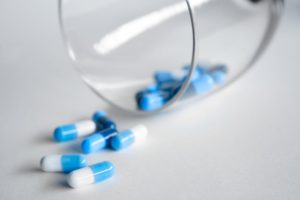Whether someone is addicted to drugs or alcohol, their thoughts and behaviour are likely to go through a particular process. Known as the Cycle of Change, it is highlighted by the addiction relief charity Adfam, which also notes how an addict might begin on the road to recovery.
The cycle has six stages – at each of which, you can help relieve issues. Those stages are…

Pre-contemplation
This is where the substance user does not even want to change, as they do not discern a problem with their usage – even if other people do.
If you notice someone in the pre-contemplation stage, you can still help by limiting harm which the substance poses to the user and other people. You can also encourage the user to transition to…
Contemplation
Through cautioning the user about their behaviour and potential consequences of such, you could lead them to both consider their situation and assess whether they wish to change it.
At this stage, they may decide that they indeed want to change, but be yet to make that change. With that user, you can explore the treatment options available to them.

Preparation
Here, the user not only decides to change their behaviour of substance use but also begins preparing to relinquish the habit. However, they may still be anxious about changing.
If you are the substance user in this situation, rest assured that we acknowledge this anxiety. However, you can still benefit from help and encouragement in making the changes that you are considering; fortunately, various sources of assistance are available to you.
Action
With this stage, the user is taking practical steps to change their behaviour for the better. For example, they might be reducing the extent of their drug or alcohol use.
If you are the addict, you could help yourself by joining a treatment programme run by ANA Treatment Centres. The Portsmouth-located ANA offers various tiers of treatment for people from across the UK, but your own journey with ANA could start with what is called primary treatment.
Maintenance
Reaching the maintenance stage means achieving an alteration in substance-using behaviour. A recovering person might, for example, stop using the substance to which they had become addicted. Alternatively, they could pick up and maintain a safer method of using that substance.
Someone could help preserve the maintenance stage – either for themselves or someone else – by removing triggers that, if left in the home, could lead to the recovering person lapsing or relapsing.
Lapse and relapse
Should someone who was recovering from an addiction briefly go back to their previous behaviour with the substance, this would be what is called a lapse.
A relapse, however, is a more serious situation; it is where the person completely returns to that substance-using behaviour. Therefore, they would have to entirely start over with the Cycle of Change. Writing for the JOE site, Jordan Gold calls relapse “crippling”; however, with help from an organisation like ANA Treatment Centres, a sufferer can make a more successful recovery.
